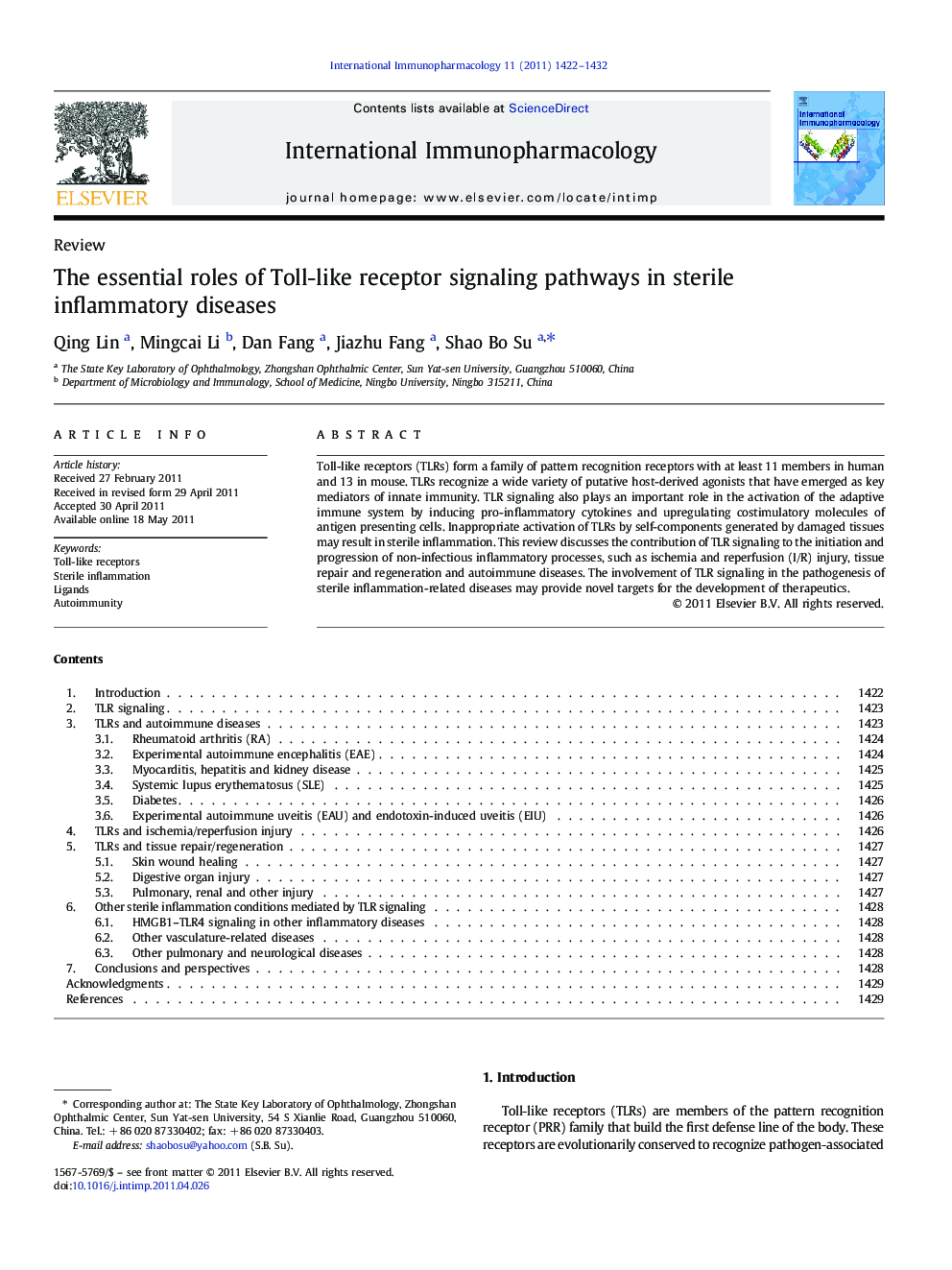| Article ID | Journal | Published Year | Pages | File Type |
|---|---|---|---|---|
| 5833783 | International Immunopharmacology | 2011 | 11 Pages |
Toll-like receptors (TLRs) form a family of pattern recognition receptors with at least 11 members in human and 13 in mouse. TLRs recognize a wide variety of putative host-derived agonists that have emerged as key mediators of innate immunity. TLR signaling also plays an important role in the activation of the adaptive immune system by inducing pro-inflammatory cytokines and upregulating costimulatory molecules of antigen presenting cells. Inappropriate activation of TLRs by self-components generated by damaged tissues may result in sterile inflammation. This review discusses the contribution of TLR signaling to the initiation and progression of non-infectious inflammatory processes, such as ischemia and reperfusion (I/R) injury, tissue repair and regeneration and autoimmune diseases. The involvement of TLR signaling in the pathogenesis of sterile inflammation-related diseases may provide novel targets for the development of therapeutics.
⺠Toll-like receptors (TLRs) provide a crucial link between innate and adaptive immunity. ⺠Inappropriate activation of TLRs by self-components generated by damaged tissues may result in sterile inflammatory diseases. ⺠The involvement of TLR signaling in the diseases may provide novel targets for the development of therapeutics.
